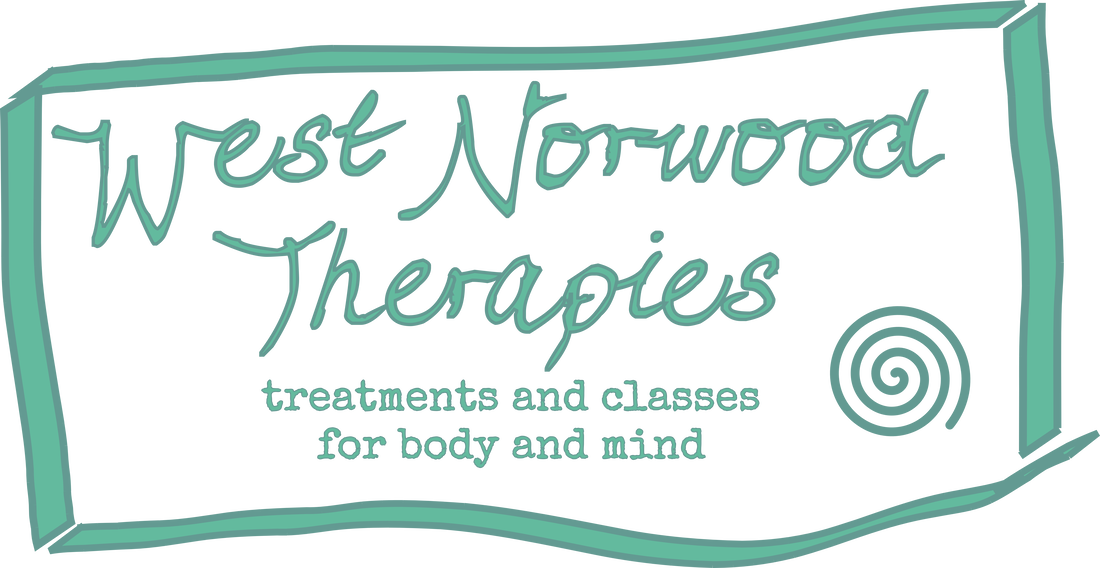|
WNT founder Jennie Duck reflects on her home birth experience and the factors that made it a positive one, sharing what supported her own experiences and some resources that could support you. My daughter turned one a few weeks ago and I have been reflecting on the moment her joyful little presence wriggled gleefully into our lives. She was born weighing 8lb 10 at 8.10pm on a Saturday night and my overwhelming feeling as I held her in my arms was luckiness. How lucky I was to have a perfect, healthy, alive little baby born just as I hoped - at home with a midwife - and joining her older brother in making their entrances as Ducks with their own minds: both born on the kitchen floor alongside, rather than in, the birthing pool.
That feeling of luckiness was largely due to a fear that haunted my pregnancy of losing our baby, a common feeling, I think, for women who’ve experienced miscarriages as I have. With this pregnancy I felt it as such certainty: surely something would go wrong and a stillbirth was the ultimate point at which this fear would be realised. So, a live and utterly healthy baby was nothing short of a miracle to my nervous system. I am still slightly stunned by it. I had a beautiful (and intense!) birth experience. I was at home in low light and felt safe. I was active throughout, lots of yogic movement and in and out of the birthing pool. I had an experienced and sensitive midwife who struck an ideal balance of letting me get on with it with support on hand when needed. I had my own music playing, my husband around and my son safely upstairs building lego with his uncle. My baby came in a swift 5 hours, contractions were intense from the get go so it was very physical and the second stage of labour was quick, just a few huge pushes (I was ready to rest by that point!). She came out in the bag, it burst as I held her and because we were at home we just transferred to the sofa and set about skin to skin snuggles with no need to go anywhere for the week to come. It could have been so different - two days before that I had a scan that caused the consultant at the hospital to suggest I had a caesarean section because they thought the baby was so big. At the ‘geriatric’ age of 41 I had agreed to this late 41-week scan to check the placenta was still in good condition. I’d asked not to be notified about the weight as I know my mental preparation would suffer a blow if I were told it was a large baby, but because they were concerned it got flagged up and it did indeed instil fear in me that I was getting ready to birth a whopper. That it should all end so positively is down to a number of things and these things are part of what makes me feel so lucky. I know many women are not so lucky and I hope by sharing some of the things that made my experience so positive someone might find support in these avenues too. The fact that they helped me cope with the turn of events that had me considering an unnecessary caesarean epitomises why these things are so precious to have. Lucky thing number 1: A wonderful midwife and midwifery team that I got to know and who got to know me. I live in Scotland so was with the Ayrshire and Arran home birthing team, but my first child was born in West Norwood with an equally excellent homebirth team connected to Kings. This meant I had all my appointments at home and I got to know each of the team over the course of my pregnancy. The team knew my history, my mindset, my physical health, my family and my home environment. My own midwife was so keen to be at my baby’s birth that she said she would come even if she wasn’t working. It was personal and supportive and it meant that when I came out of the scan appointment where the hospital midwife and consultant didn’t know me, my midwife was able to reassure me that my body was growing a baby appropriately sized to my capacity, that my mental and physical preparation were good and that a home birth could still be my first choice. She was so right (and here’s one for physical touch and palpation over technology): my baby was 8lb 10 rather than the 11lb the scan had suggested. Moreover, I had no painkillers, interventions and no ‘exit wounds’ from the birth, only some muscular soreness from the effort and intensity. Lucky thing number 2: The support of a hypnobirthing expert and bodyworkers and the financial capacity to pay for it. I am sad that these are a privilege to women because they are so powerful and helpful. For hypnobirthing there are free and cheaper resources out there which I encourage you to use – guided meditations, books, relaxation exercises and some of the resources listed below are all really helpful. But the one-to-one support I had was incredibly valuable to me, especially as I began to prepare for the possibility of birthing an 11lb baby! Hypnobirthing works using hypnosis and deep relaxation to help shift limiting beliefs and doubt in the subconscious so it can help you prepare deeply and, for me, helped me trust my body’s implicit wisdom and capabilities. I also had some acupuncture – privately from pre-conception and throughout pregnancy and then, amazingly our local midwifery team were trained in ‘cervical ripening’ at the later stage so I had this and some foot massage from my midwives! Full body massage was also invaluable in helping my body prepare, relax and for the physical strain of late pregnancy. Lucky thing number 3: My own education and understanding of bodies, birth, mind-body interplay and a decision to tune out what wouldn’t help Of course, as a bodyworker and the owner of a complementary health business I live in a world where things like ‘mind-body interplay’ are ongoing considerations – so this lucky thing is partly due to my personal interests and life trajectory. It also means I am in an environment where I know people who will suggest things to me like reading Ina May Gaskin who opened the door to homebirth for me and gave me the confidence to start down that road. It also meant that things like peroneal massage were a no-brainer and I prioritised the relaxation side of yoga, using yoga nidra (see below) a lot and ensuring any strength building involved lots of breath work too. I realise many people are not in this world and the jump to homebirth or some of these approaches might be bigger than for me, but the fundamental point is that my interest in what was happening and going to happen in my body and focus on working with that played an ENORMOUS part in my having the positive birth experience that I had. It doesn’t need specialist knowledge or even interest, more an attitude of tuning in and listening to what your body and baby need and then (this is the hard part) acting on that, even if it means (as it did for me) cocooning yourself for several weeks and potentially offending some people. I believe empowering myself with knowledge, techniques and boundaries made all the difference. Lucky thing number 4: The emphatic support and trust of my partner This is a big one for home birth because you have to believe that it is the right choice for you and your baby. If your partner would feel safer in a hospital then this can impact your ability to fully relax into being at home, you might absorb their anxiety. My partner read Ina May Gaskin too and learned to trust that I knew my body. It was better with the second – with my first home birth he let his absolute honesty interfere! When I wanted him to tell me it was going to be ok he said “I’m sorry I just don’t know that” so I pushed him away and asked the midwife to tell me instead, which she duly did😊 The second time he knew that I just needed to hear his belief in my capacity and he was more ready for this. And here are my key learnings that helped me have a positive birth:
Resources: Ina May Gaskin – any of her books! Birth Matters is a great starter. Guide to Childbirth another helpful one and Spiritual Midwifery if you are already a bit down the road with home birth / open to more esoteric reading Kristin Hayward Hypnobirthing – Kristin is based in Herne Hill and also offers sessions online. She does sessions with couples and individuals and is so lovely, encouraging and an expert in her field Katherine Graves is another big name in hypnobirthing and has a book that might be helpful if you aren’t able to have one to one sessions Yoga Nidra and Uma Dinsmore-Tuli – Uma is the queen of yoga nidra (yogic sleep / deep relaxation) and this wonderful resource features lots of free (or payment by donation) yoga nidra sessions and some good birth preparation exercises (see the shop – yoga for birth or pregnancy)- I used a lot of this during my labour, it was wonderful 😊 https://www.yoganidranetwork.org/ Acupuncture – Philippa is our fertility, pregnancy and birth prep specialist at WNT and if I’d been in London I would have seen her regularly as I did with my first child (also a positive home birth) Massage – Erika has lovely hands and has worked on a lot of pregnant bodies, she would be able to help with aches and pains and provide a gently nourishing space in late pregnancy and also post-natal recovery period (which in my experience is over a year long…!) Reflexology – Laura offers this other approach to fertility and pregnancy support which is an equally effective alternative to acupuncture – I recommend choosing based on your preferences and what you are drawn to
0 Comments
Acupuncturist Philippa Summers suggests some local classes suitable from pregnancy to preschool and highlights which of the WNT team can support you around this busy, nurturing stage of life. As the nights begin to draw in and we withdraw inside a little more it can be more challenging to plan your days with a baby or toddler, and to look after your own well-being and fitness. Well, the good news is there are a wealth of opportunities out there, activities you can do with your baby or children and classes for yourself with your baby or at those precious moments you have to yourself. Just getting out and meeting up with other mums and dads can make a whole world of difference as you adjust to parenthood. Maybe you are looking for something specific or just want to browse and see what’s out there.
I came across a website, Happity, that makes searching for classes and events in your area a doddle. It covers everything from pregnancy through the baby and toddler years to age 5. Prices vary, some are free and some low cost from as little as £2. Among them are:
I know from my own experience and that of probably every parent I know just how important these groups are through this phase of life. If you are struggling with post-natal depression Happity also have a dedicated area of their website which includes links to useful resources. Check out their blog, too. I’d like to make a special mention for Gather-ed as they offer something a little different and I think much needed. They offer 1:1 support, workshops and group gatherings with experienced facilitators including midwives - ‘gently facilitated discussions on themes and topics relevant to parenthood…and are a space for honest, authentic conversations’. Wednesday mornings at Knowles in West Norwood, other classes in East Dulwich. Pregnancy Treatments at West Norwood Therapies Finally, we can help to support you throughout your pregnancy with our treatments at West Norwood Therapies:
Acupuncture: Some women choose to have regular acupuncture to support them throughout their pregnancy, but commonly it will be to help with a particular issue. In the early stages of pregnancy women often seek help for morning sickness and at the latter stages for breech presentation and birth preparation. For birth preparation there are advantages to starting treatment at 36 weeks but with the all-clear from your midwives we can also offer treatments when you are overdue and facing an induction. If you are trying to conceive Laura and Philippa also offer fertility focussed treatments, too. Please just get in touch if you’d like to find out more. Acupuncturist and wholesome food enthusiast Philippa Summers shares some of the benefits and uses of bone broth and advises how to get a good batch going with insider tips and ideas to make it tasty and nutritious. I have always had an interest in cooking wholesome food for both enjoyment and health and am guided away from processed foods by choosing ingredients that ‘ran, swam, flew or grew’ in their most natural state. Like many people I have in recent years leant towards a more heavily plant-based diet with an emphasis on a wide variety of colourful fruit and veg, wholegrains and plant-based protein like lentils, pulses, beans and tofu. However, I do still eat fish and meat, buying far less but of higher quality, higher welfare - by trying to choose largely wild fish and meat that is free-range, grass fed, preferably organic - and using every last bit which brings me to the wonders of bone broth. It has been revered for its potent nutritional and medicinal properties by various cultures across the globe for thousands of years from ancient Greece, throughout Africa and Asia, to the infamous recuperative ‘Jewish Penicillin’. A South American proverb states ‘Bone Broth will resurrect the dead’. It had a reputation within Chinese Medicine stretching back over 2,500 years for its ability to support digestion and reproductive health – pre-conceptually for both men and women to support egg and sperm health, during pregnancy for mum and baby, and post birth to help mum rebuild her strength. Bone broth is packed with easy to digest gelantinous protein and amino acids from the collagen in cartilage, and minerals such as magnesium, calcium, phosphorus and potassium from the bones, extracted by long slow cooking. Wide ranging potential health benefits include helping to support skin, bone and joint health, soothing gut issues like ulcerative colitis and leaky gut, supporting immune function, helping recovery from upper respiratory infections and it may also help to promote good sleep. The combination of skin, joint and sleep effects likely make it beneficial for women post menopause, a time when increasing protein and reducing carbs can be helpful. We can get a bit caught up about what’s in food and what it is good for. Sometimes it is good just to let go of that and enjoy the wholesomeness because you know in another more intuitive way that it is nourishing. For me bone broth is one of those things. A warm soothing elixir! It is delicious drunk on its own, makes a great base for soups and stews. For convenience you can buy bone broth ready-made, conveniently packaged and delivered frozen direct from the farm to your door but it is far cheaper and satisfying to make your own. It cooks for so long that it is more economical on fuel to cook up a big batch so I collect any chicken bones both raw and cooked in the freezer until I have a good supply, supplementing them with some chicken carcass bones from the butchers to fill a stock pot. Chicken Bone Stock Recipe This recipe uses chicken bones and cooks for 4-6 hours. You could make a fish version substituting the chicken for fish heads and bones usually discarded by the fishmonger so very cheap – use about 1kg per litre of water - and simmer for one hour. Strain through muslin to remove all bones. You’ll need a large stock pot with a tight fitting lid. Ingredients:
Method: Optional: Before making the stock you can roast the bones for an hour in the oven until they are golden for a richer flavour.
The effort will more than pay off for the ease with which you can prepare a tasty meal or quick warming drink that nourishes you deep to the bone. Enjoy! Acupuncturist Philippa Summers looks at the 'two week wait' in menstrual and ivf cycles and how she adapts treatment during this time when supporting clients in their journey to conceive and offers some helpful self care tips for this time. Trying to have babies when it doesn’t just happen easily can be a heart wrenchingly difficult time. There can be months even years of trying, balancing hope with uncertainty, even at times despair. Another cycle starts. Is this going to be your lucky month?
When supporting women with fertility I tend to focus treatment on the follicular phase leading up to ovulation, or in the case of IVF through the stimulation phase until egg collection and at embryo transfer. These are the times that research has shown acupuncture can have a significant influence on live birth rates (Zheng, 2012). Treatments around embryo transfer, when they can be scheduled in without adding extra stress, are also shown to have a beneficial effect on outcomes (Smith, 2019). Ideally, men and women would also have received some preconceptual lifestyle advice during the preceding months, not least of all to support egg and sperm quality as they develop and mature. Treatment can be aimed at regulating the menstrual cycle, supporting endometrial development and addressing other issues impacting on fertility. Treatment during the follicular phase will be aimed at supporting the processes that take place throughout the menstrual cycle including the luteal phase but what about treatment during the actual luteal phase or the two-week wait as it is commonly known, which follows ovulation or embryo transfer? How can Acupuncture help? As I have said, I tend to focus most treatment during the follicular phase but that does not exclude treatment during the luteal phase. It is a time to be cautious with any treatments that could disturb the delicate interplay between the embryo and uterine lining around the time of implantation, but treatments aimed at relaxation and good sleep can be positively beneficial. It is often an anxious time when every little twinge seems to take on some significance. An acupuncture treatment can offer a gentle wind down from the intensity of IVF or the pressures of trying naturally, at a time when sound sleep and a feeling of calm may be quite elusive. How can you support yourself during the two week wait? The preparations you have taken in the preceding months, weeks and days will help to lay the foundations but here are 10 tips to support implantation and help through these two weeks:
Good luck. Remember that even under perfect conditions there is only a 1 in 4 chance of conceiving each month, so it can take a while. Please contact me if you think I may be able to help you. On Maternal Mental Health Day WNT founder Jennie Duck considers how she finds being a mother and fantasises about things that she thinks would improve mental health in mothers and society I love being a mother. I love having that relationship with my son. I love being around him, I love watching him grow, I love sharing his important moments and hearing him find himself and his passions. I love snuggling him to sleep and being woken by him in the morning (less so at 4am). I love the richness he brings to my life and the ways that relationship pushes me to grow and be a better person.
It is also challenging, in particular the expectations I realise I have of myself around what it means to be a mum and who else I am ‘allowed’ to be at the same time. I find the juggling is difficult and varied and I have had to work to create self care time as I wrote about in a Shame and Self Care blog. I am still working hard to hold onto myself as a broad, multifaceted creature and realise how easy it is to slip back into the assumption that being a ‘good’ mother is synonymous with total self sacrifice. These are my expectations on myself and that I see in mothers around me, which must come from the world and society in which we were raised. Maternal mental health is important for our children’s mental health and for our society at large. And I believe it is a challenge to all mothers to maintain mental health. We have a constant need to juggle and our brains and bodies are expected to jump in all directions often simultaneously. We are often tired and overstretched and I think our society has a long way to go to accommodate flourishing mental health for us. I love Caitlin Moran’s insight into how we are forever changed on a chemical level by motherhood: “No one really talks about the chemical elements of parenting but when you think about it, this is what underpins everything. Humans are essentially bags of chemicals We choose our mate on their smell, their hormones subliminally whispering to us in a neanderthal grunt ‘this man make good baby with you’ then when a woman gets pregnant, what is created in her uterus is essentially a living hormonal implant emitting random amounts of fuck knows what into her system and rewiring her entire body and brain in a massive hormonal pyroclustic blast that she never fully recovers from” (Caitlin Moran in More Than a Woman) Here are my fantasies of how a shift in our expectations could come about that might better support maternal mental health: What if… ...It was widely understood and accepted by society that pregnant women are going through an immense change that involves so much loss as well as gain. That there is much to be grieved in becoming a mother - a sense of self, alone time, sleep, some friendships, an ability to wholly commit to something else, our bodies as they were, our attitudes as they were - everything as it was! ...we recognised openly that ‘tired and hormonal’ can really mean ‘can barely lift myself off the chair and feel like my brain is exploding’ and realised that those things shouldn’t be ignored just because they are common, that in fact this is womanhood in all its glorious colours, a rainbow to be celebrated and supported. ...our society recognised the value in rest and supporting mothers to get rest that they need from the early weeks of pregnancy through to their children leaving home, that work breaks for naps were a given and it was built into our expectations that we are all healthier and happier when well rested. …our government understood ’supporting childcare needs’ less as simply making the age for group child care lower and more the benefits to our future society of child care with a much lower adult to child ratio ...we gave more space to the fact that bringing a child into a relationship utterly changes the relationship and can often leave the person who didn’t give birth feeling left out so that couples finding themselves in this difficult place don’t feel bad or wrong and instead know this is their rites of passage to get through. ...we allowed women to work and be a primary carer by helping support the caring part better, that the person paid to look after the child can feasibly be the one who loves them best and that we didn’t feel it was a constant sacrifice between our work passions and our family as to who gets more of our time and energy. ...we celebrated the changes in women’s bodies that come with pregnancy, birth, breastfeeding, getting older and the menopause and let go of any expectation or idealisation of ‘back to a pre-pregnancy body’ - what if we could celebrate every stage of women’s bodies.... ...it was widely understood that Feminism doesn't mean ignoring biology but restructuring society so that we can accommodate everyone fairly rather than simply ‘letting’ women do more and more things. ...things that strengthen our bodies, minds and spirits like yoga, mediation, therapies and walking were valued to such a degree that we assumed it was part of our every day like eating and washing. ...we understood that you cannot separate the physical from the mental or emotional and that our mental health is always going to be affected by things that affect our bodies, like pregnancy and motherhood. The optimist in me sees some steps in some of these directions and is hopeful that society is changing, however incrementally. At the heart of any of this change is kindness and compassion - things that we so value in the act of mothering that surely should be so highly valued in how we treat our mothers in society. Acupuncturist Philippa Summers, who has a special interest in fertility, shares some helpful resources around supporting the often overlooked area of male fertility. here is a growing movement among men and male fertility specialists to encourage the issue of male fertility into the open, improve awareness and access to help, both specialist and peer support. Prompted by watching a BBC program on male fertility with comedian Rhod Gilbert aimed at opening up the conversation and garnering more support, I have put together some resources. I hope they will be useful to men facing fertility issues, especially if they are feeling isolated and unsure of where to turn. It is also National Infertility Awareness Week.
In couples struggling to conceive male factors contribute almost 50% of the time and are often overlooked, especially so when an identifiable contributing issue has been identified in the woman, and this can leave many male issues underdiagnosed and undertreated. It can leave couples struggling often with an over reliance on IVF, which may give you a chance of navigating around a problem but will not rectify an issue, and the emotional, physical and financial burden IVF imposes is comparatively very high. Where male factors have been identified men often bear it alone, harbour their feelings and find it difficult to discuss these very private issues with anyone, including their partner, friends or family. It can be very isolating, impacting on almost every aspect of their life. It can also be a source of conflict within couples, allowing resentments to build up and adding to the already considerable strain. So where can you find support, advice and treatment? Here are some resources that you may find helpful regardless of where you are on your fertility journey, be it starting out and looking for lifestyle advice to help improve sperm and semen, or somewhere down the road and looking at getting investigations, treatment or support. Maybe to begin with you just want to find out that you are not alone and have a chance to listen to other men’s experiences and how they are coping. Be selective so that you are not overwhelmed with information. Included are resources that you can access anonymously or listen to on your own where your privacy is important. Acupuncture A quick mention of the benefits of acupuncture. For men with suboptimal semen parameters acupuncture has been shown to improve the number of normal sperm by improving sperm count, movement and shape – all important factors for improving fertility. Typically the needles are placed in the arms, legs, back and abdomen – never locally! It is also extremely relaxing and helpful for coping with stress and low mood. Information Fertility Network UK have plenty of good up to date information on all aspects of fertility including male fertility. This is a good starting point for information. The Fertility Podcast website has several episodes that focus on male fertility. Each podcast is accompanied by notes to help you find those that are likely to be of most interest and relevance to you. They include personal stories, which can help to break down the stigma and isolation, and interviews with male fertility specialists to help understand where different tests and treatments fit in as well, as providing tips for improving your fertility. Specialist Consultations and info Your GP is usually the first port of call for accessing specialist help. Ask to see a GP in the practice with particular knowledge of male fertility. They should offer you a comprehensive semen analysis and a physical examination with NHS referral to a specialist Andrologist (men’s equivalent of a gynaecologist) where appropriate. This is something you can request giving you the same level of investigation as is routinely offered to women. Prof Sheryl Homa and her team at Andrology Solutions , an HFEA licensed male fertility clinic, have exceptional knowledge of male fertility and provide diagnosis and support for men who are trying to conceive. They are a private clinic and you can self refer. They also have some very useful information on their website. Consultant urologist Jonathan Ramsay is one of the leading experts in male fertility. His website has a wealth of information including the latest advances in research and guidelines. He is available for private consultation. Nutritionist Melanie Brown specialises in helping men and women with fertility, IVF and pregnancy. The right nutrition and supplements provide a solid foundation for overall good health as well as fertility and can make all the difference. Men Only Support Groups Here are a couple of groups where you can connect with other men going through similar problems. Men’s Fertility Support – a men only Facebook group where men can discuss male fertility issues anonymously. It says IVF/IUI/ICSI but may be broader than this. Fertility Network Uk run a regular Zoom support group for men only (which you can join with your camera off if you wish to remain anonymous). On the linked page it mentions an April date but as of Feb 2021 it is still running. Film, TV and radio programmes Comedian Rhod Gilbert ‘Stand Up To Fertility’ on BBC2. While undergoing treatment himself comedian Rod Gilbert goes on a frank, revealing and frequently funny journey into the world of male infertility. BBC Radio 4 Benjamin Zephaniah discusses his experience of male infertility with urologist Kevin McEleny, and also talks separately to a couple, Richard and Terri, about their experiences of male fertility issues. Also BBC Radio 4 My Life as a Childless Man. Writer and actor Rod Silvers talks about his experience and the isolation that it can cause. He encourages men to find ways to speak about it, something he still finds difficult. LGBTQ+ Community The Agora Journals podcasts – from The Agora Clinic in Hove. They treat heterosexual couples and solo parents but also have a deeper awareness than many clinics of the needs of the LGBTQ+ community, including people who are transitioning for whom egg and sperm preservation before transition is important. I hope that among this selection you find something that helps you, whatever your circumstances. Very best wishes, Philippa |
AuthorBlogs from the WNT team. For our blogs from before June 2020 please see individual profile pages - it's a good way to get to know practitioners too. Archives
June 2024
Categories
All
|
|
Visit us - by appointment only please - in the office block in the Access Self Storage premises at 443 Norwood Road, London, SE27 9DQ
[email protected] Phone - please contact practitioners directly, or if not in a rush you can leave a message for us to call you back at 07931876931. |
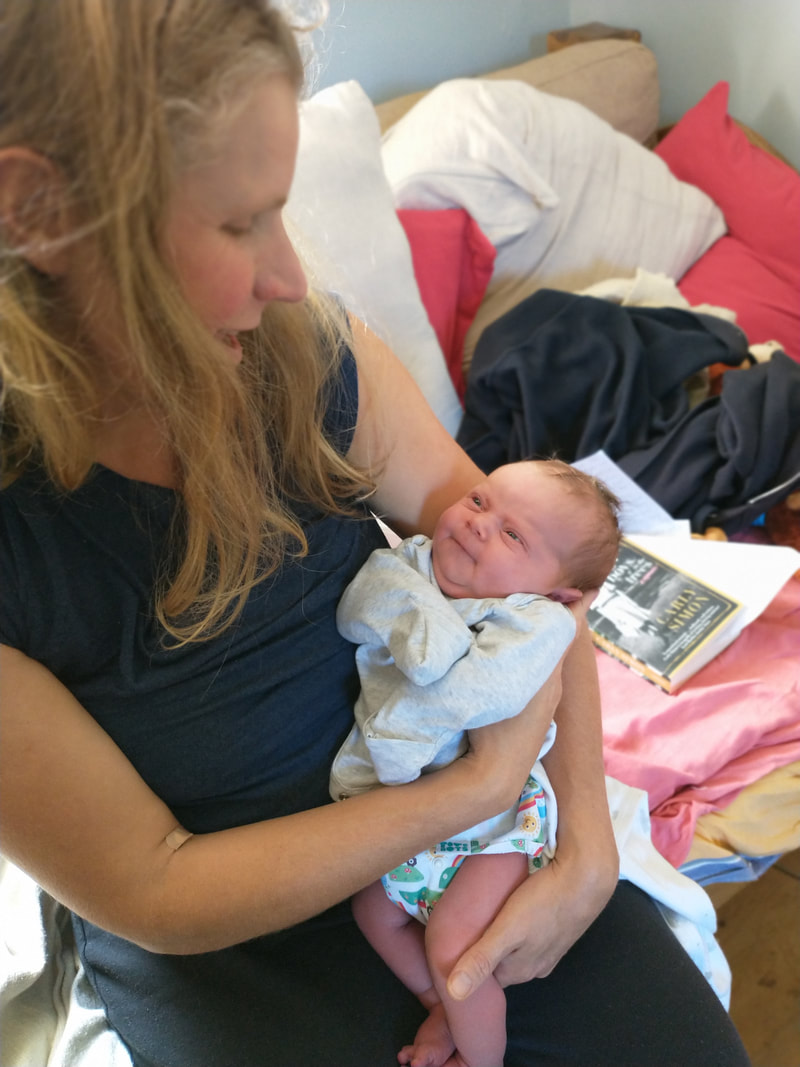

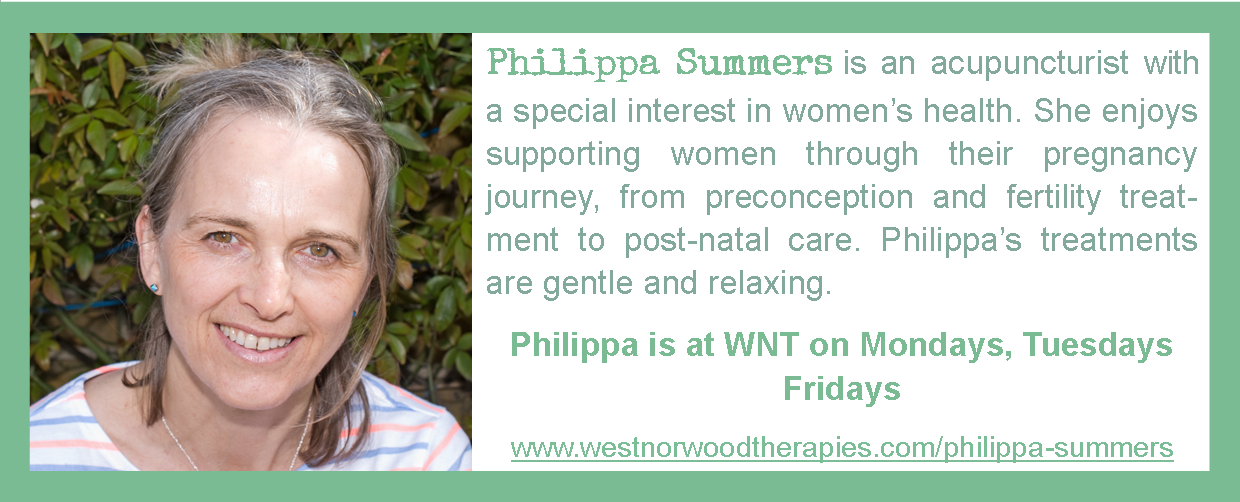
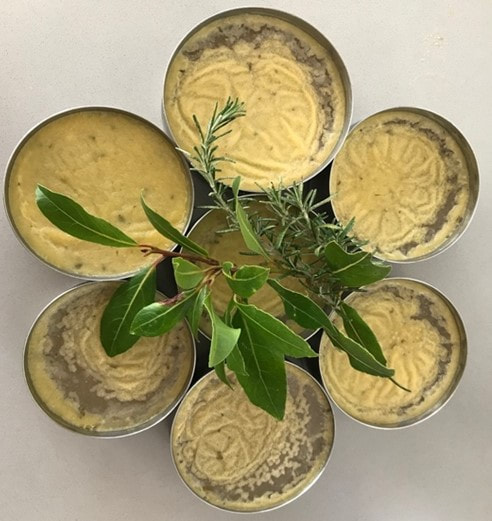

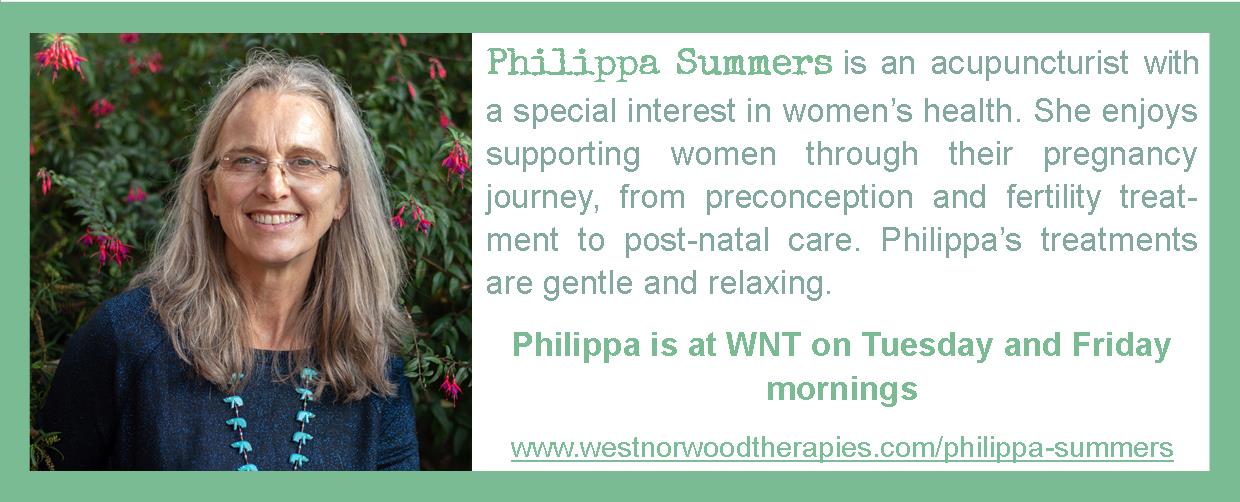
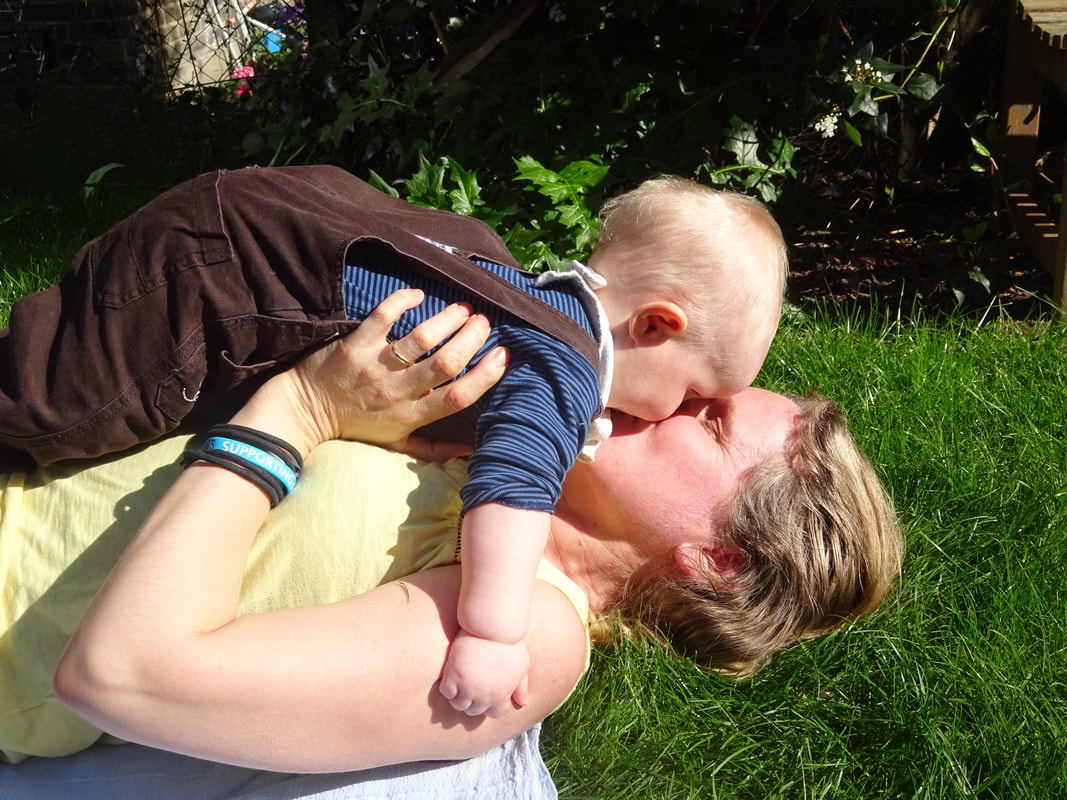
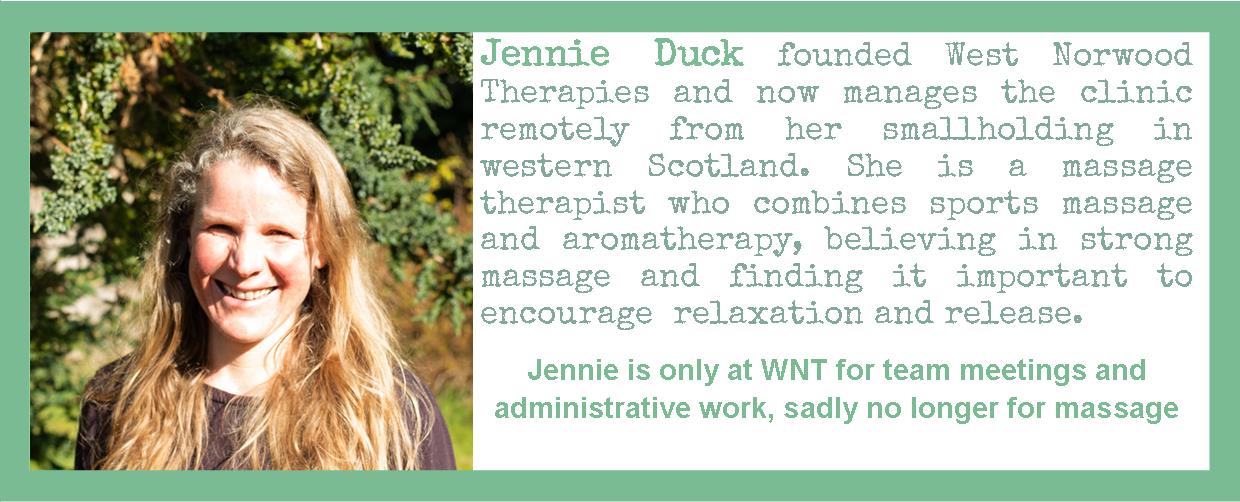

 RSS Feed
RSS Feed
